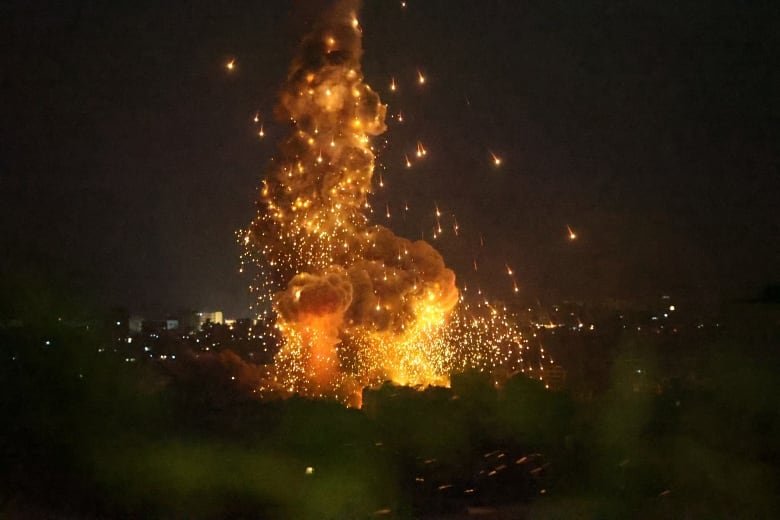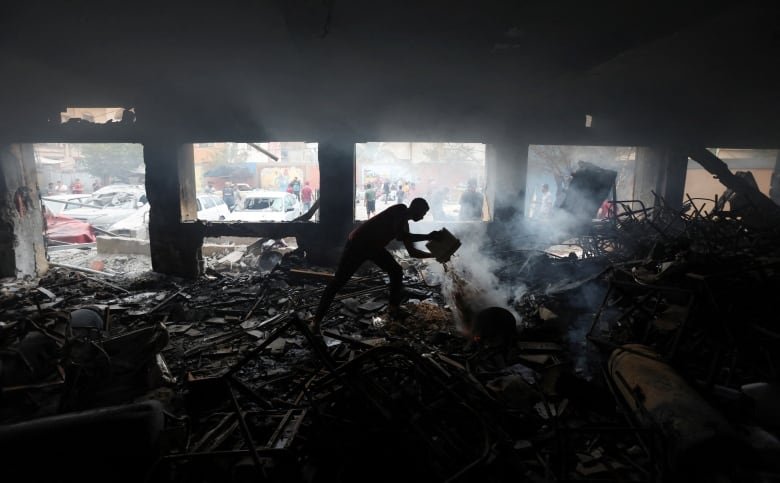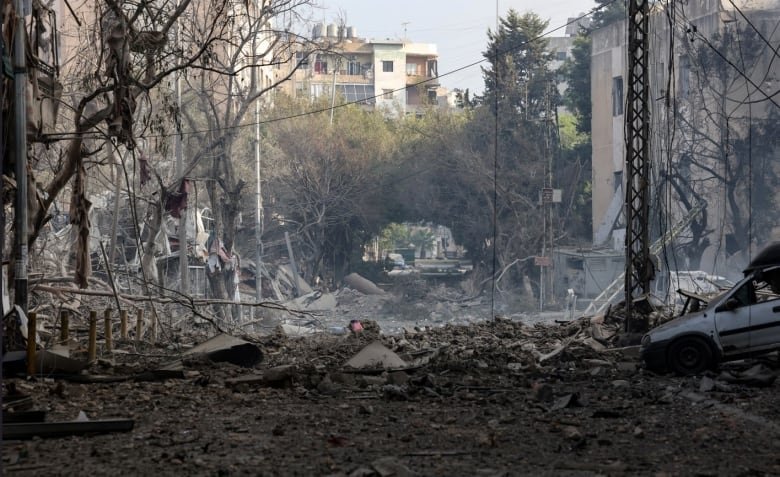Israel bombed targets in Lebanon and the Gaza Strip on Sunday ahead of the one-year anniversary of the Oct. 7 attacks that sparked its war as Israel’s defence minister declared all options were open for retaliation against arch-enemy Iran.
Israeli airstrikes battered Beirut’s southern suburbs in the most intense bombardment of the Lebanese capital since Israel sharply escalated its campaign against Iran-backed group Hezbollah last month. Large fireballs lit the darkened skyline and booms reverberated across Beirut.
The Israeli military said fighter jets struck targets in Beirut belonging to Hezbollah’s intelligence headquarters and weapons storage facilities. It said strikes also targeted Hezbollah in southern Lebanon and the Beqaa area.
On Sunday night, Israel declared three more areas on its northern border as closed military zones, in addition to more than five closed last week as military staging areas.
An Israeli strike on a building in the central mountain town of Kayfoun killed six people and wounded 13, Lebanon’s Health Ministry said. A strike in the nearby town Qmatiye killed six more, including three children, and wounded 11, it said.

In the Gaza Strip, at least 26 people were killed and 93 others wounded when Israeli airstrikes hit a mosque and a school sheltering displaced people on Sunday, according to the Hamas-run Gaza government media office. The Israeli military said it had conducted “precise strikes on Hamas terrorists.”
Meanwhile, Hezbollah rockets launched late on Sunday got past Israeli air defence systems and landed in Haifa, Israel’s third-largest city, causing damage to buildings, police said. Israeli media reported 10 people were wounded in rocket strikes in Haifa and the city of Tiberias.
Hezbollah said it had targeted a military site south of Haifa with a salvo of “Fadi 1” missiles.
Israel began its war in Gaza after Hamas’s Oct. 7 attack a year ago on southern Israel killed some 1,200 people, while more than 250 were taken hostage, according to Israeli figures.

Its campaign to eliminate the militant group has killed nearly 42,000 people in Hamas-controlled Gaza, Palestinian authorities say. The coastal enclave lies in ruins, and the United Nations says at least 1.9 million people — three-quarters of the population — are internationally displaced.
The conflict in Lebanon, which started a year ago with cross-border strikes by Hezbollah in solidarity with Hamas, has rapidly expanded in the past couple of weeks.
Snubbing a U.S.-backed push for a ceasefire, Israel began ground operations in Lebanon and pushed ahead with a wide air campaign that has pummelled Lebanon and displaced 1.2 million people, according to Lebanese government figures.

More than 2,000 people have been killed in Lebanon in nearly a year of fighting, most in the past two weeks, according to the Lebanese Health Ministry. The ministry said on Sunday that 25 people were killed on Saturday.
“Last night was the most violence of all the previous nights…. There were dozens of strikes — we couldn’t count them all — and the sounds were deafening,” said Hanan Abdullah, a resident of Beirut’s southern suburbs.
Israel said its air force conducted targeted strikes on Hezbollah weapons storage facilities and infrastructure.
‘Everything is on the table,’ Israel says
Iran launched a missile attack on Israel last week in response to its aggression in Lebanon and Gaza, where armed groups Hezbollah and Hamas are Tehran’s allies in a so-called Axis of Resistance.
Israel, which says its objective is the safe return of tens of thousands of citizens to homes in northern Israel, vowed retaliation amid fears that tensions will escalate into an all-out regional conflict.
Israeli Defence Minister Yoav Gallant said on Sunday his country would decide independently how to respond to Iran even though it was closely co-ordinating with longtime ally the United States.

“Everything is on the table,” Gallant, who is due to meet U.S. Defence Secretary Lloyd Austin on Wednesday, said in an interview with CNN. “Israel has capabilities to hit targets near and far — we have proved it.”
While the U.S. has said it would not support strikes on Iranian nuclear sites, President Joe Biden said last week that Israeli attacks on Iran’s oil facilities were being discussed.
Israel snubbed a U.S.-backed push for a ceasefire in launching ground operations in Lebanon. The U.S. government reacted on Sunday to Israel’s heavy bombardment there by saying that military pressure can enable diplomacy but can also lead to miscalculations.
French President Emmanuel Macron said over the weekend that shipments of arms to Israel should be stopped. Israel said such a step will serve the purposes of Iran.
Canada extricates citizens from Lebanon
Global Affairs Canada said in a statement on Sunday that it “successfully helped” more than 1,000 people fly out of Lebanon in the past week, including Canadian citizens and permanent residents, their immediate families and nationals from other countries.
The department said that since Sept. 30, it had been contacted by more than 5,000 people with ties to Canada inquiring about evacuations.
The federal government has secured plane tickets to help Canadians get out of Lebanon, but thousands are still waiting for word on when they can leave.
“All interested eligible travellers with whom we have communicated specific offers have departed or will do so in the coming days,” GAC said.
“The ongoing crisis has rendered communications extremely difficult throughout Lebanon. Despite these challenges, Global Affairs Canada’s Emergency Watch and Response Centre in Ottawa continues to work, around the clock, seven days a week reaching out to Canadian citizens, permanent residents and their immediate family through all available channels.”
Global Affairs said there are more than 25,000 registered Canadians in Lebanon.















